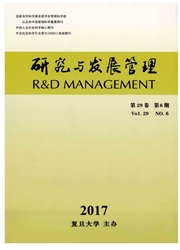

 中文摘要:
中文摘要:
将战略性新兴产业培育的过程依据决策时序划分为技术研发和成果产业化两个阶段,基于不完全合同理论构建模型,探讨在政府决策主导下公有制、私有制及混合所有制所有权安排及经理人努力对研发和运营投入的影响.研究表明,混合所有制安排对战略性新兴产业技术研发投入的作用显著;由于政府私人收益及寻租动机的效率损失,从而会错失公有制下最大化社会福利效益的最优所有权安排.进一步扩展模型,引入经理人作用分析不同所有权安排下战略性新兴产业运营投入及经理人收益和努力水平,得出私有制和混合所有制下经理人的薪酬激励占优,而公有制下运营投入和经理人努力水平更接近效率水平.最后,针对战略性新兴产业培育的混合所有制安排,讨论了战略性新兴产业运营组织形式、政府定位及经理人激励的政策启示.
 英文摘要:
英文摘要:
The development process of strategic emerging industries was divided into R&D stage and operation stage de- pending on the decision sequence. Based on the incomplete contract theory, it constructed the model to analyze the im- pact of ownership arrangement and manager effort on the R&D investment and operation input of strategic emerging in- dustries. Research results show that the hybrid ownership arrangement has significant impact on R&D investment, but due to the private income and rent seeking motivation by government, the optimal ownership arrangement for maximiza- tion of social welfare will be missed under the public ownership arrangement. Then, introducing the role of manager ef- fort to extend the model, it analyzed the operation inputs and executive income and effort under different ownership ar- rangements. It finds that manager compensation incentive is dominant under private and hybrid ownership arrange- ments, while operation input and manager's effort are closer to the efficiency level under public ownership arrangement. Finally, it discussed the policy implications of strategic emerging industries development.
 同期刊论文项目
同期刊论文项目
 同项目期刊论文
同项目期刊论文
 期刊信息
期刊信息
